He hadn’t yet won enough votes to clinch Indonesia’s presidential election, but with the confidence of a man poised to take power of one of the world’s largest democracies, Prabowo Subianto gave a press conference, half-naked, from his private swimming pool on the outskirts of Jakarta.
At 72, the ex-army general, once banned from the United States over alleged human rights violations, might be decades older than his competitors – both former governors in their 50s – but he says he is more than ready to lead.
“The most important objective of democracy is giving people the leaders and representatives they want,” Prabowo told reporters from his pool. “I hope all parties understand the greater goal.”
Official results will be announced in March. But according to early figures, which historically have been accurate, Prabowo garnered an enormous 60% of the vote, avoiding a run-off in June.
He lost presidential elections twice to the wildly popular Joko Widodo, also known as Jokowi, sparking deadly riots in 2019 after he challenged the results. Now he is poised to become Indonesia’s next leader.
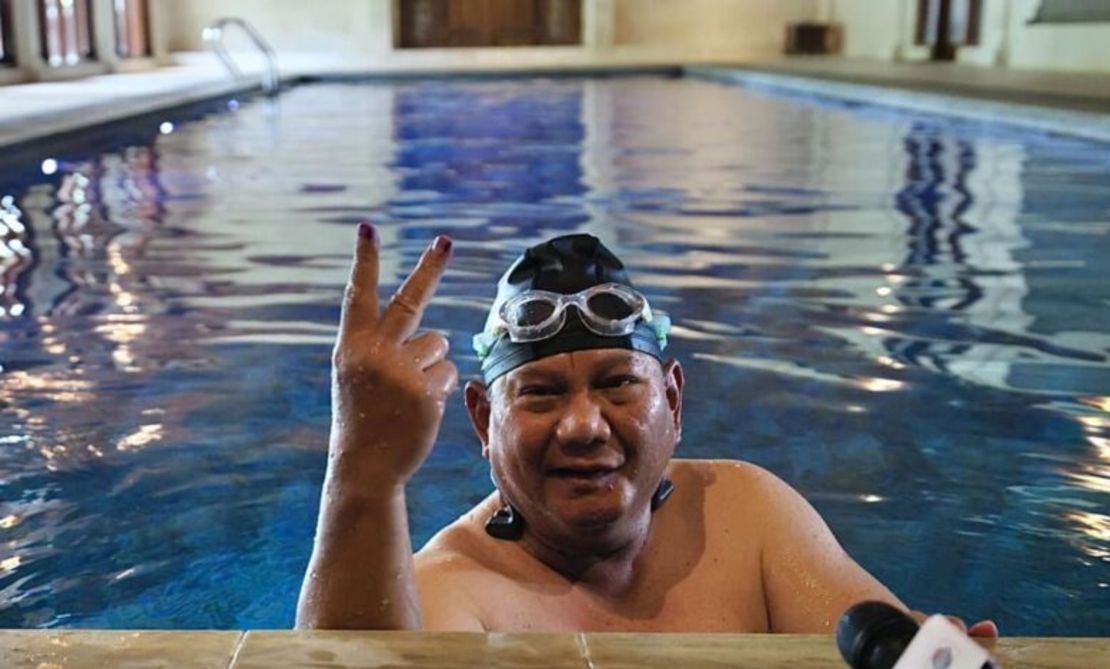
But speculation is rife about what a famously short-tempered military man will do when he ascends to office and what it will mean for the country’s hard-won democracy.
“Prabowo has worked really hard to whitewash his egregious past and reinvent himself with a softer, cuddlier image but it’s still too early to tell what kind of president he will be,” said Zachary Abuza, a professor in Southeast Asian politics and security issues at the National War College in Washington, DC.
“Jokowi’s focus had been on the economy. He believed that economic growth and development would resolve all conflicts,” Abuza added.
“I see Prabowo looking at problems through a military lens. Safeguarding sovereignty and national security will be his priorities.”
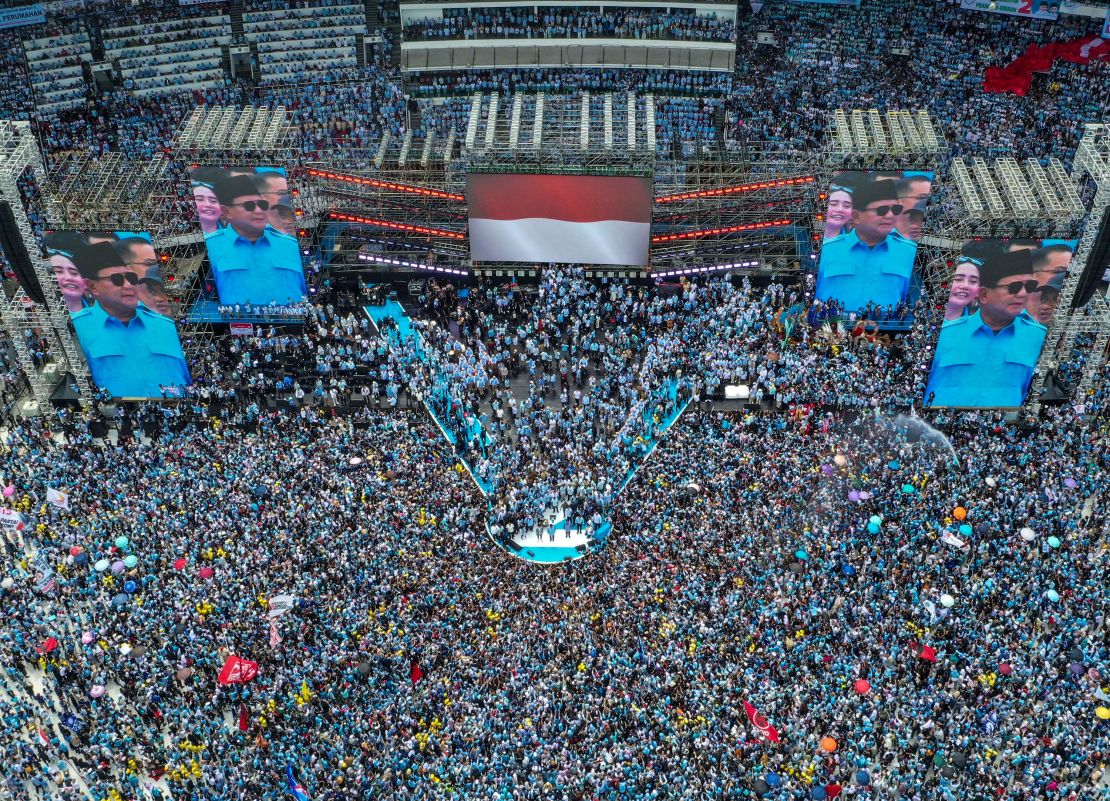
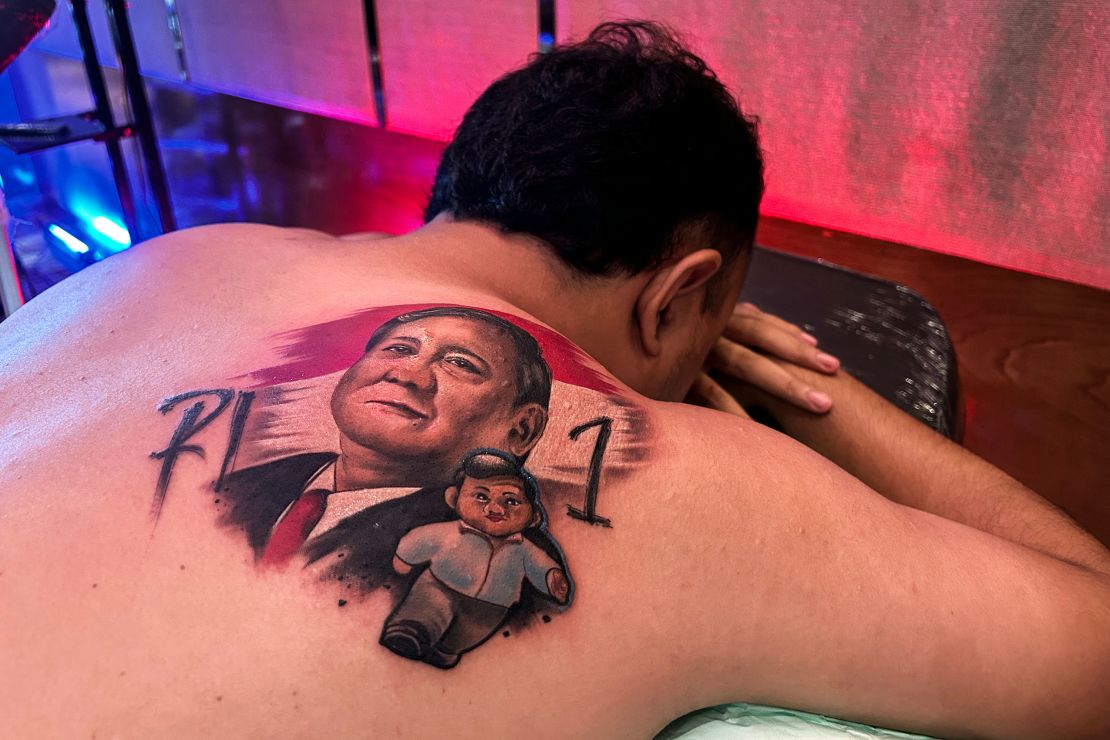
More recently, Prabowo has presented himself as a loyal Jokowi ally, serving as his defense minister for the past five years. Much of his 2024 election campaign focused on continuing the outgoing president’s pet projects and policies.
But the two could not be more different, political watchers say.
When Widodo won the election in 2014, he drew comparisons with Barack Obama and rode in on a platform of change – becoming the first elected president in Indonesia’s history with no ties to the political or military elite.
Experts say Prabowo, known for his fiery speeches, military background and combative past will make for a very different kind of president.
He is considerably more outspoken and confrontational than Widodo, who is known for his calm and conciliatory demeanor, they add.
“Prabowo had a reputation in the military for fighting and for his short temper,” said Tom Pepinsky, professor of government and director of the Southeast Asia Program at Cornell University. “While he might not have the same crassness or brashness of politicians like Rodrigo Duterte, Javier Milei or Trump, his politics replace concern for law and order with a preference for order over the law.”
“Prabowo does have temper issues,” said Abuza. “It’s very easy to get under his skin – as we’ve seen for ourselves in the presidential debates – and don’t forget: this is someone who has justified military rule and like all politicians, knows how to turn on the charm.”
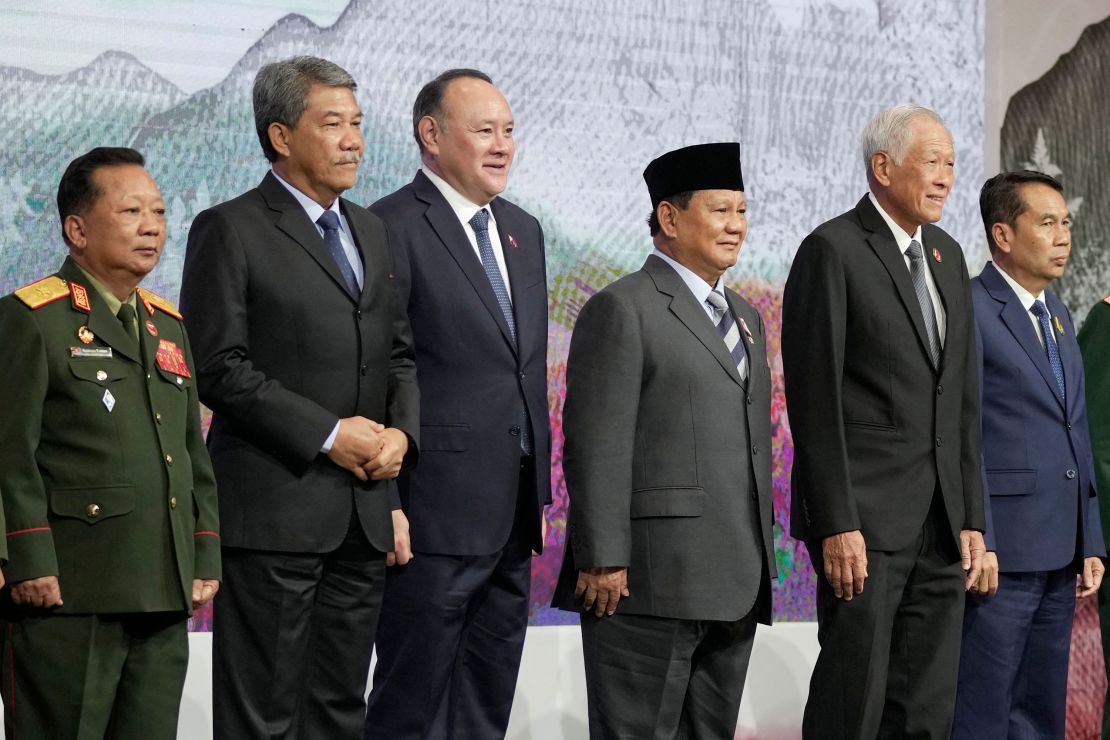
A new era in foreign policy?
As Indonesia’s defense minister, Prabowo is no stranger on the world stage.
While rights groups might criticize him, foreign leaders have been quick to congratulate him on his apparent victory. “Prabowo will be more comfortable as a world leader than Jokowi was,” said Pepinsky. “His English is stronger and he is confident moving around in international circles.”
But his appearance at a security summit in Singapore last year left audiences stunned when he delivered an impromptu peace plan to end the war in Ukraine, calling for a demilitarized zone that would have allowed Russia to keep its territorial gains.
As president of Indonesia, there will be greater pressure on Prabowo to navigate and maintain strong diplomatic ties with countries like China and the US, as well as close neighbor Australia, experts told CNN.
Indonesia has long been one of Australia’s most important bilateral relationships and experts say that will not change with Prabowo in charge.
“Australia will be very careful. Its relationship with Indonesia is seen as being very politicized, one that’s always on spiky ground,” said Jacqui Baker, a Southeast Asian politics lecturer and senior fellow at the Center for Indo-Pacific Research in Perth.
“The Australian government will work very hard to maintain its partnership and good working relations with Indonesia.”
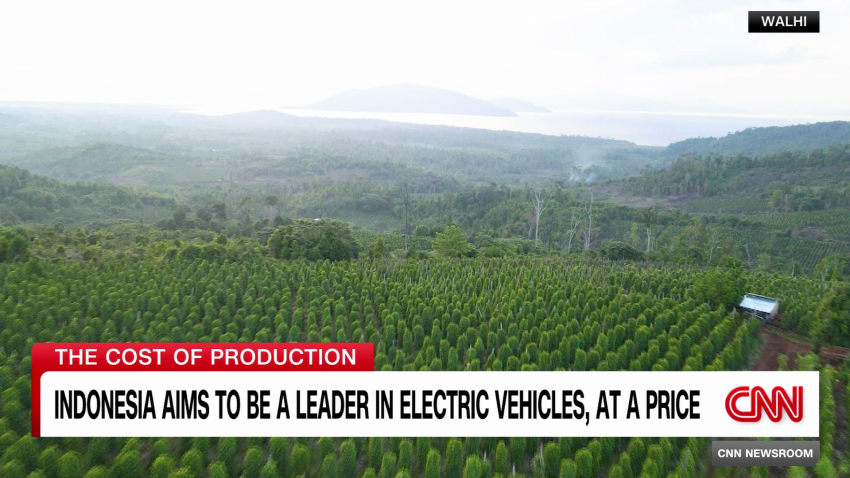
Resource-rich Indonesia, with the world’s largest nickel reserves, is also seen as a big prize for influence in Asia.
Widodo’s ambitions for the country’s economy have led him to seek out good relations with both Beijing and Washington. Indonesia will continue to maintain neutrality even after Widodo leaves office.
“We expect Indonesia, led by Prabowo, to continue a pragmatic approach and maintain neutrality by not aligning with China or the US to allow it to continue welcoming both Chinese and Western investment,” said Laura Schwartz, Senior Southeast Asia Analyst at risk intelligence company Verisk Maplecroft.
But he “should expect” international scrutiny of his reputation, Schwartz added.
“Prabowo might have successfully rehabilitated his image domestically but on a global stage, he is still perceived to be a polarizing figure and may face more scrutiny around his controversial history.”
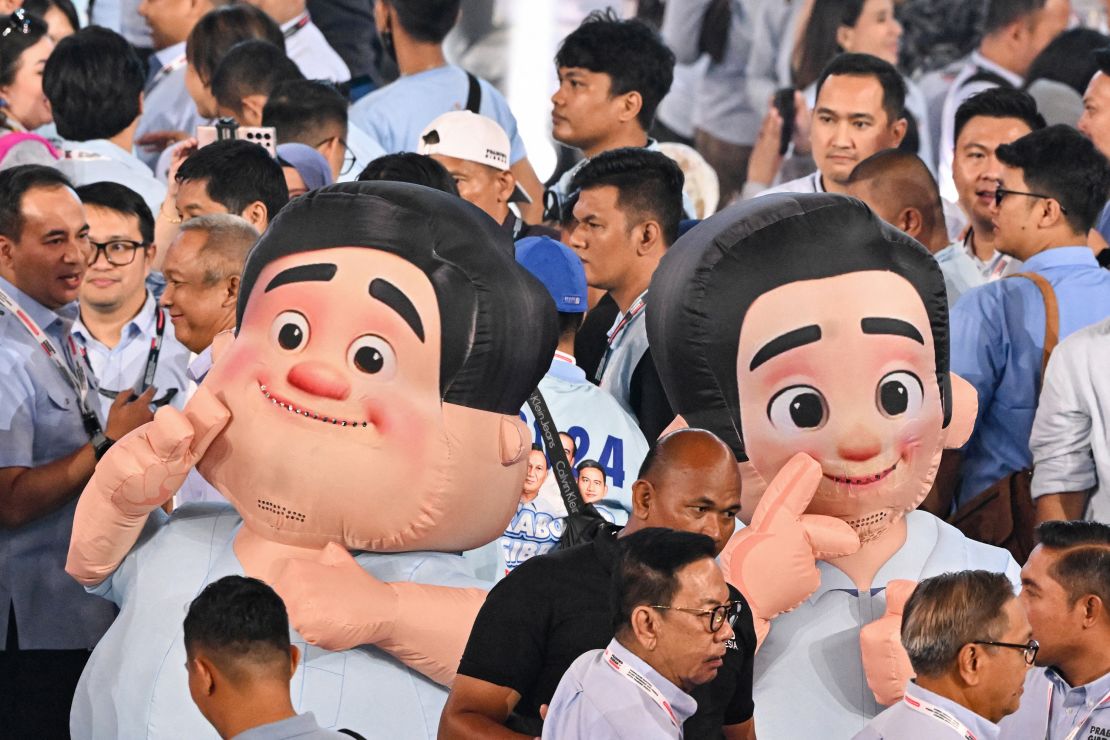
Diplomatic relations with China have been especially important during Widodo’s final year in office, which saw him aggressively courting lucrative Chinese foreign investment deals to speed up infrastructure development.
“Prabowo will continue to seek out Chinese investment like Jokowi has but whether he has the patience and consistency that Jokowi has demonstrated is unknown at this point,” said Chong Ja Ian, an associate professor of political science at the National University of Singapore. “His past behavior record has included more instances of unpredictable changes in direction.”
Much of the commentary concerning Prabowo and the US has centered on a ban imposed on him back in 1998 after he was dismissed from the military over alleged human rights atrocities following the fall of the late dictator Suharto, also his former father-in-law.
Security experts have pointed out several visits Prabowo has made to the US since becoming defense minister in 2019. Past sanctions on him are unlikely to present any major hurdles when he becomes president. “Prabowo’s ban from entering the US was waived and he has been here more than once and met with very senior officials – effectively whitewashing rights abuses in his past,” noted Abuza.
Dan Slater, a political science professor and director of the Center for Emerging Democracies at the University of Michigan, told CNN that he foresees Prabowo having “some leeway with the US” after he becomes president.
“Washington is going to be looking for endeavors and ambitions in Asia, particularly vis-a-vis with Beijing, and as long as it looks at Asian countries as terrain for competition with China, it will give Prabowo some latitude to make initial goodwill.”
That said, Prabowo “won a democratic election in a huge landslide,” Slater added.
“So there’s going to be a lot of inclination on Washington’s end to try and get along with him.”
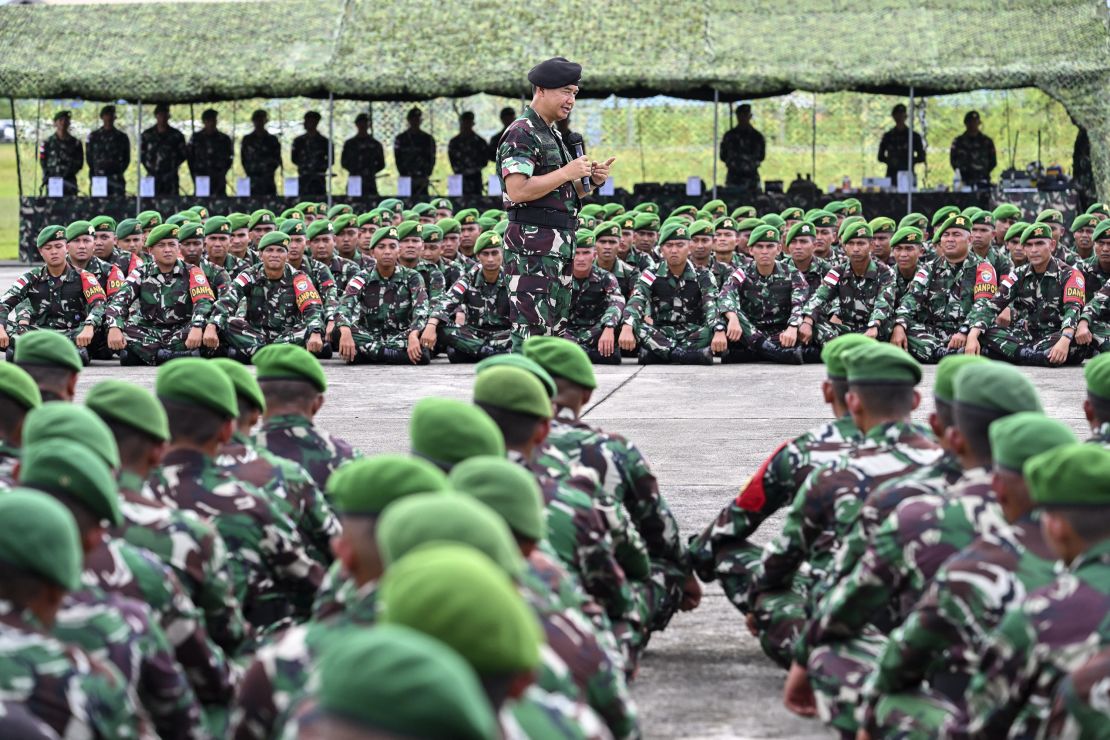
Revival of military political power
For much of his decade in office, Widodo’s focus had been on advancing Indonesia’s economy, famously pledging it would become the world’s fourth largest by 2045. Economic growth and infrastructure improved under his watch as he courted major Chinese companies and electric car giant Tesla to invest in its nickel mining industry.
Prabowo, while a very wealthy and savvy businessman with assets reportedly worth more than $125 million, is first and foremost a military man and is likely to have different priorities, experts say.
“As defense minister, he was committed to military modernization. As president, it is unclear how and if he will use the military to further his aims,” said Chong, from the National University of Singapore.
“The risk is if he seeks to re-politicize the army to serve his interests or closes an eye to corruption and abuse.”
His stance about territorial issues in the South China Sea is expected to remain the same, Chong added. “He has little incentive to escalate (tensions) but if he believes Indonesia is being provoked, he might be more willing to take risks as compared to Jokowi, as we’ve seen with his military past.”
Indonesia’s army, known by its initials TNI (Tentara Nasional Indonesia) is formally banned from politics but even with legal restrictions in place, generals remain a powerful force. “In Southeast Asia, people do tend to look to militaries as being trusted and important institutions especially if there are corrupt politicians in government,” said Abuza.
“In Indonesia, we have seen the TNI systematically claw back authority over the years and try to reassert itself in spaces that should be the purview of civil authorities… I can definitely see Prabowo going into the ranks of retired army officers and generals for many of his advisers and cabinet officials.”
“But a bigger concern is if he accelerates the return of a dual function role for the military.”
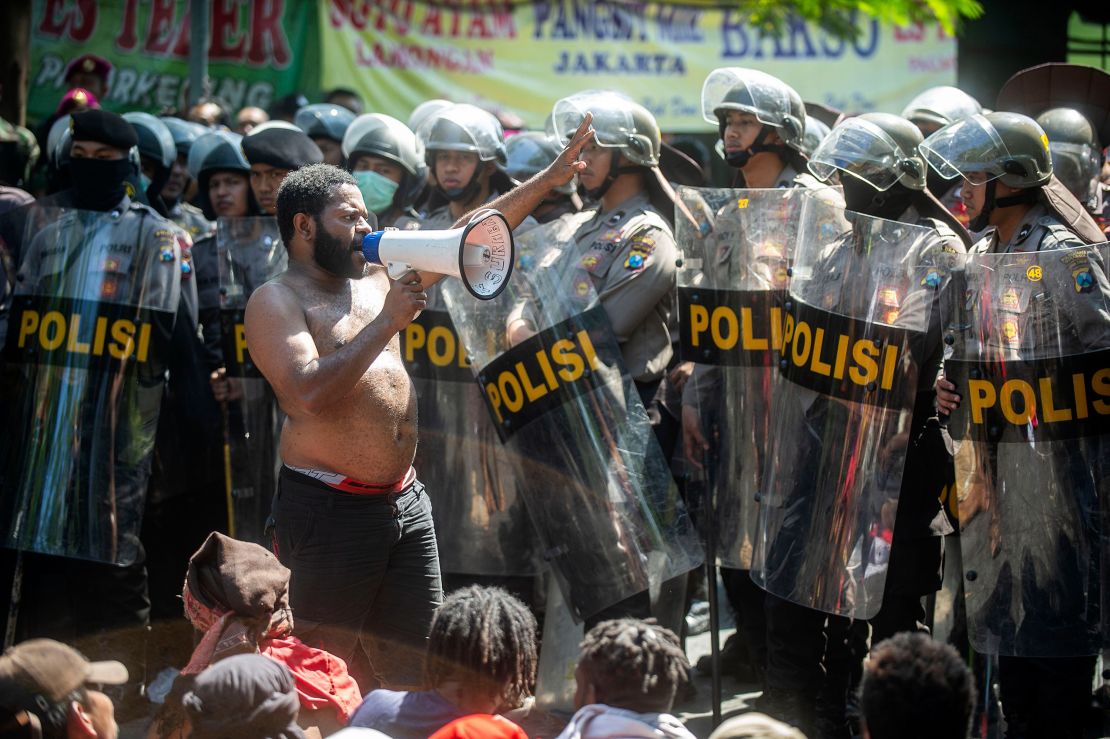
‘Papua is going to be ground zero’
On TikTok, it would seem as if Prabowo’s former life as a fearsome special forces commander never existed – the result of a successful rebranding campaign that charmed young voters and transformed him into a cuddly grandfather figure.
But not all have forgotten his bloody past. “We are dealing with the possibility of our next president being implicated in major human rights violations,” said Usman Hamid, executive director of Amnesty International Indonesia. “A Prabowo presidency could roll back our democratic reforms and the fear is that things are going to change for the worse.”
Of particular concern is Papua, the restive province where TNI troops have long maintained a strong presence. Access to the country is tightly controlled and accounts of abuse by soldiers against civilians are frequently reported.
“Papua is going to be ground zero for many of Prabowo’s policies,” said Abuza. “He has advocated a more military response to crush Papuans and I would imagine that he will not be one to seek out political solutions.”
“I just do not see him trying to reach negotiated settlements that would grant the region more autonomy. If anything, he would increase state control,” he added.
A Prabowo presidency risks a dangerous repeat of the late Suharto’s authoritarian regime, said Indonesian human rights lawyer Veronica Koman who currently lives in exile in Australia.
“The situation in Papua is about to get worse,” Koman told CNN.
“And seeing Prabowo’s track record in East Timor, this can’t be underestimated.”
CNN’s Kathleen Magramo and Angus Watson contributed reporting.
https://news.google.com/rss/articles/CBMiZGh0dHBzOi8vd3d3LmNubi5jb20vMjAyNC8wMi8xOS9hc2lhL3ByYWJvd28tc3ViaWFudG8taW5kb25lc2lhLXByZXNpZGVudC1wcm9maWxlLWludGwtaG5rL2luZGV4Lmh0bWzSAWhodHRwczovL2FtcC5jbm4uY29tL2Nubi8yMDI0LzAyLzE5L2FzaWEvcHJhYm93by1zdWJpYW50by1pbmRvbmVzaWEtcHJlc2lkZW50LXByb2ZpbGUtaW50bC1obmsvaW5kZXguaHRtbA?oc=5
2024-02-19 10:24:00Z
Tidak ada komentar:
Posting Komentar